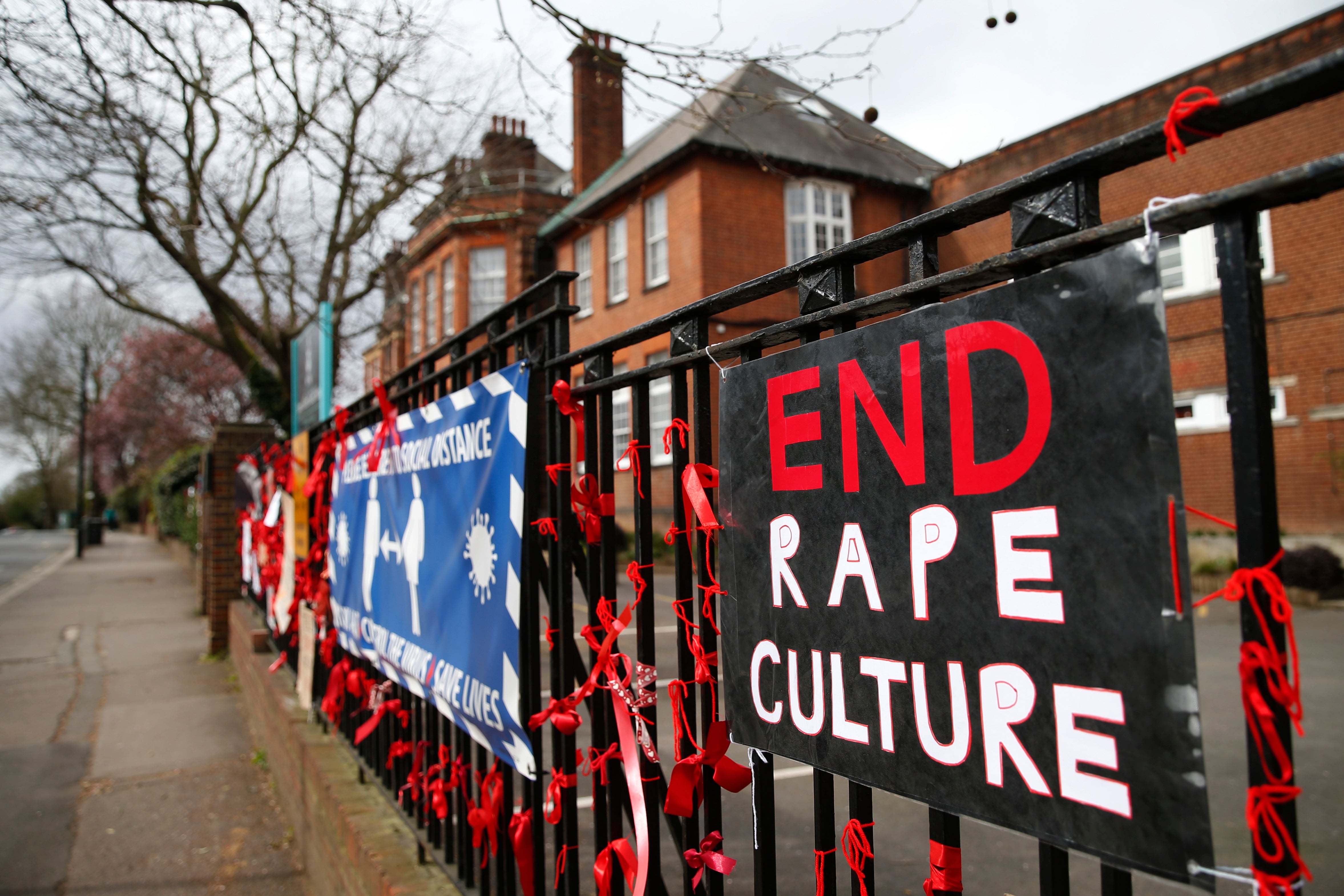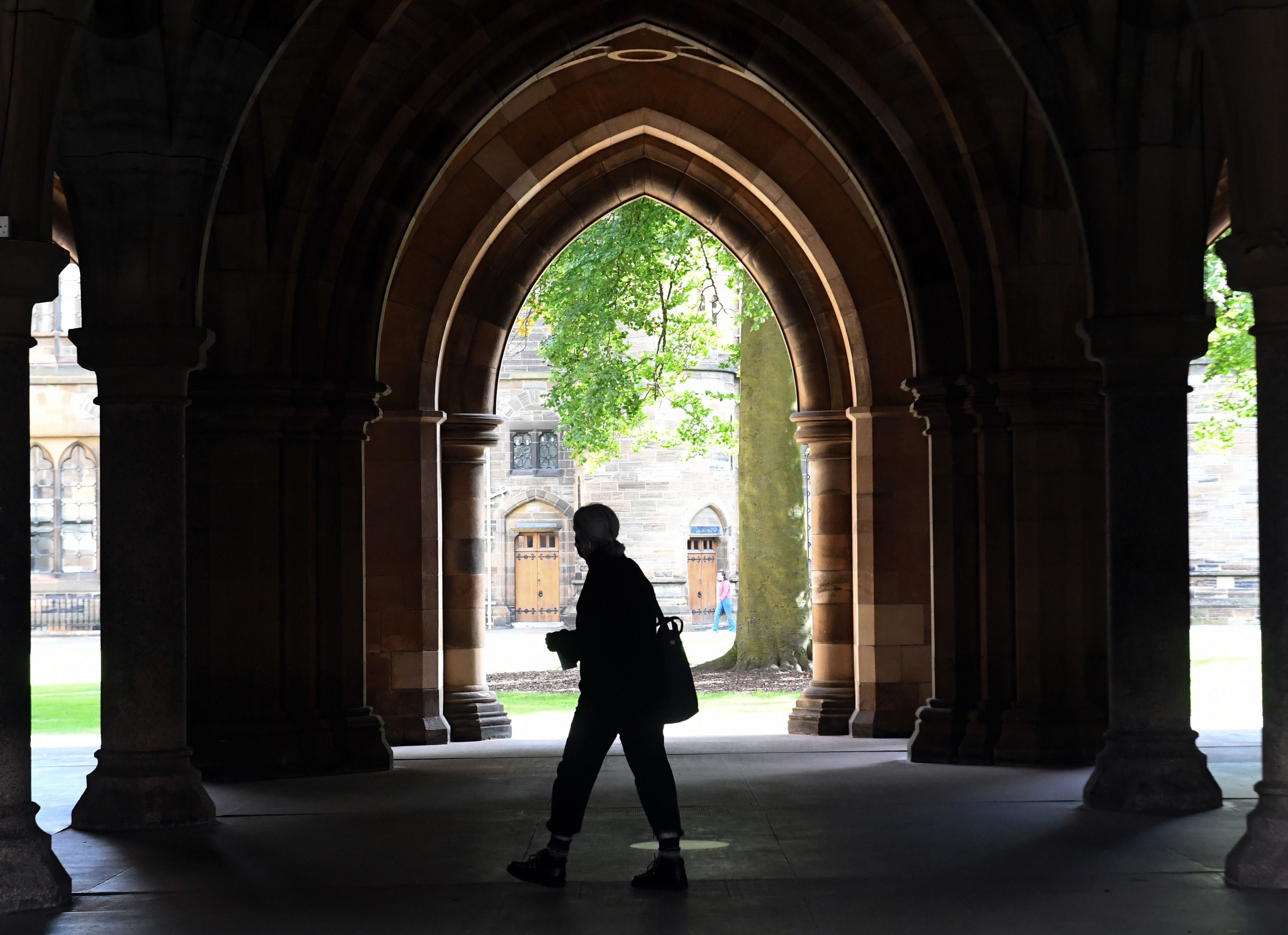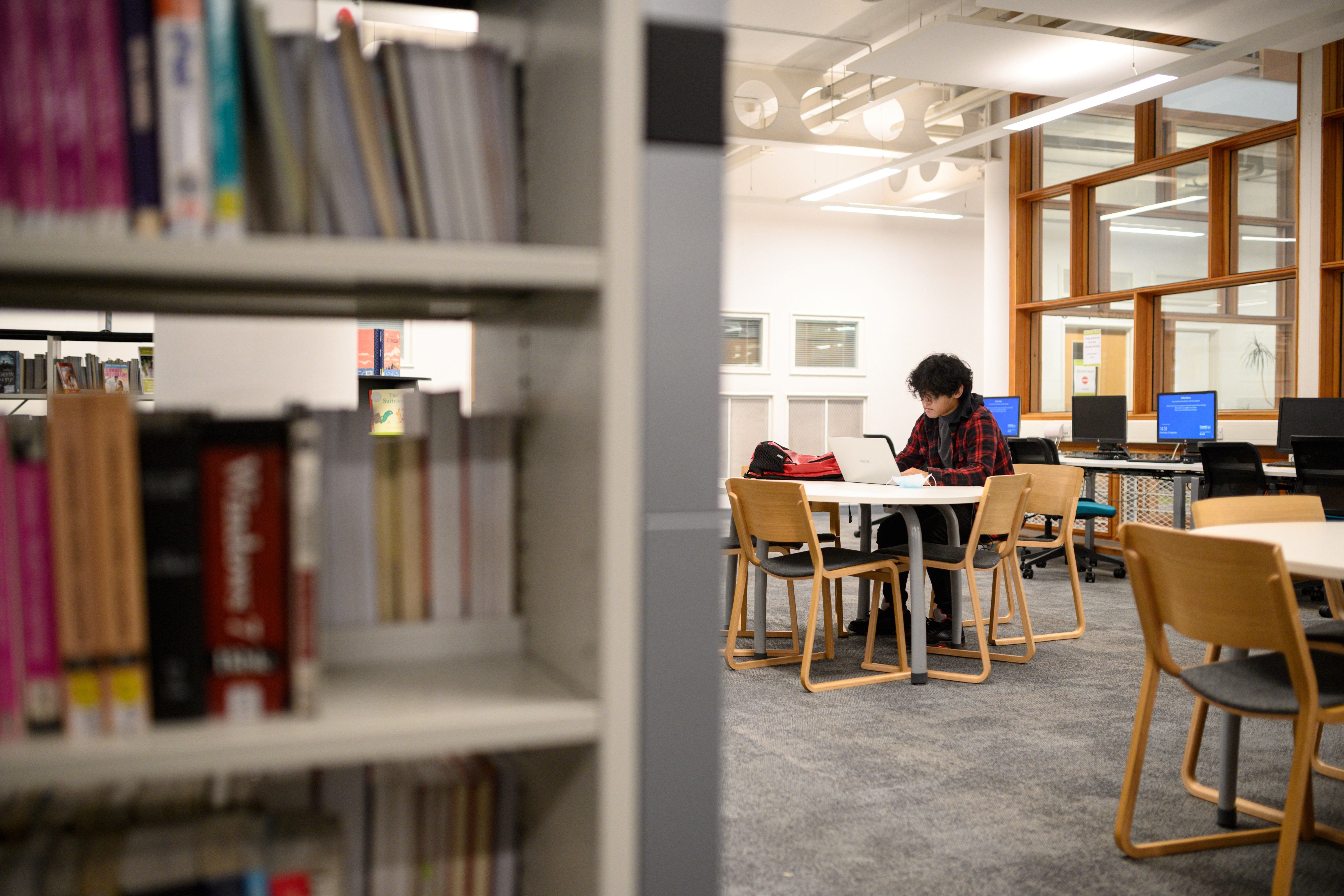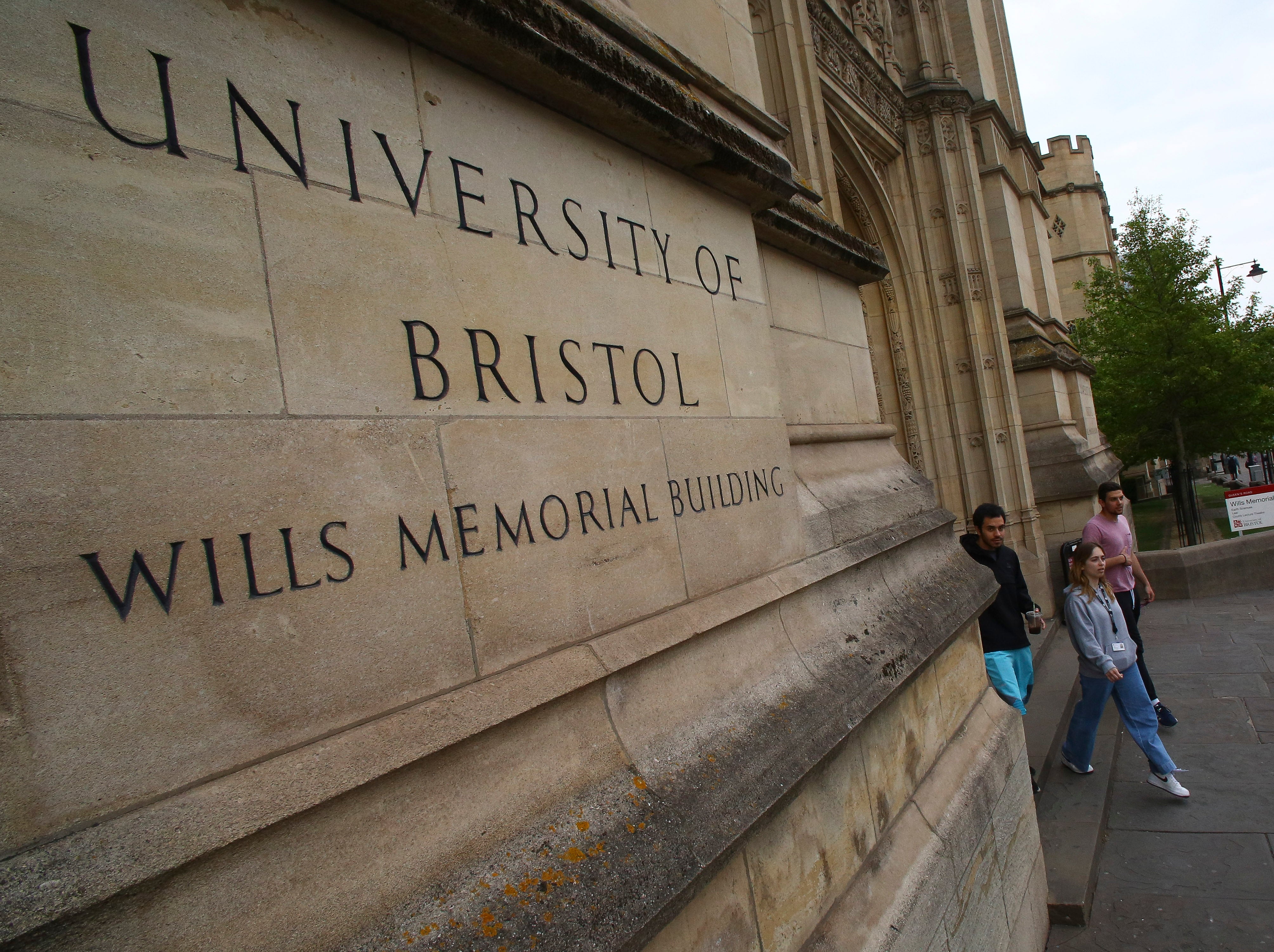Students ‘failed’ over ‘crisis’ of sexual assaults at universities amid calls for tougher action
The regulator is urged to step up action as efforts to tackle abuse on campus fall ‘woefully short’

Students are being “failed” over the “crisis” of sexual harassment and assault on campus, The Independent has been told, amid calls to overhaul the way universities deal with the problem.
Current and former students say they feel let down after reporting rape and abuse to their university, with cases not taken seriously enough and not enough care taken to keep alleged perpetrators away from victims.
Others said they did not feel comfortable or have enough trust in the process to make a report in the first place.
Labour called on England’s higher education regulator to do more to tackle the problem, saying their expections for providers over sexual harassment fell “woefully short”, as the shadow minister for higher education told The Independent students were being “failed”.
The Liberal Democrats also urged the Office for Students (OfS) to treat sexual violence experienced by students “as the crisis it is”.
It comes as The Independent revealed ministers have urged the higher education regulator to give itself new powers to tackle sexual violence on campuses.
Nadhim Zahawi, the education secretary, and Michelle Donelan, the universities minister, told the OfS it should make not following its recommendations on how to prevent and respond to sexual misconduct a sanctionable offence.
This could involve a range of penalties, with the worst, or repeated, breaches resulting in a loss of university status.
Universities have faced increased scrutiny over rape culture since the Everyone’s Invited campaign shared thousands of testimonies of abuse and assault shared online, often naming schools or universities.

Most female respondents said they had experienced sexual violence at UK universities, in a 2018 poll. Just over a quarter of men said the same.
And last year, one in nine male university students who took part in a survey admitted to rape or sexual assault.
Victoria*, a third-year York University student, told The Independent she was harassed and sexually assaulted by an ex- boyfriend.
He was suspended for the duration of her undergraduate degree. But Victoria, considering a master’s degree, was initially told her abuser would be allowed back.
Victoria, said a university panel ruled against her appeal as they owed him “a duty of care” and “he needed to be able to finish his undergraduate degree”.
“When they said they owed him duty of care, I was speechless to start with,” the 21-year-old told The Independent. “And then I said, ‘Do you not owe me a duty of care still being a student and also a victim of this actual assault?”
Her former boyfriend continued to harass her and broke a no-contact order that had been imposed. He has since been excluded. “But the process was not made easy,” she said.
A York University spokesperson said it continued to promote a culture where students “feel safe, supported and able to report unacceptable behaviour”.
Another woman, Harriet*, said she felt Bristol University’s response was “really bad” after she was spiked, beaten and raped as a first-year student around six years ago.
She said it drew up a non-contact order between her and her attacker, but said it was otherwise a police matter.
The order said she could not go near or make contact with her alleged attacker. “It made me feel like I was suddenly the person that had done something wrong,” Harriet, now 25, told The Independent.
When police dropped her case due to a lack of evidence, the university extended the non-contact order.

But she said that did not go far enough. She bumped into her attacker for the rest of her degree, which triggered panic attacks.
Harriet stopped going clubbing as she would imagine she had seen him. “Sometimes it was him. But most of the time it wasn’t him. I knew that but I would still start freaking out,” she said. “I just stopped going in the end.”
A Bristol University spokesperson said it had since changed how it supported students whose police case were dropped.
Last year, England’s higher education regulator told universities to do more to tackle rape culture and harassment and to review policies.
In 2020, the Office for Students (OfS) also warned students who had been sexually assaulted or harassed were being let down by “inadequate” support and “ineffective” reporting procedures.
Harriet told The Independent she had asked to avoid being put in the same room as her rapist, who studied in the same department, for exams, but the request was not granted. Instead she had to call up and check each time.
“Obviously, it’s not the university’s fault what happened to me,” she said. “But if it had been taken a bit more seriously by them, then I might have been less scared – at least on campus in the daytime – and having to call up about my exams, because that was the only time, realistically, we’d be in the same room and I couldn’t leave.”
Matt Western, the shadow universities minister, told The Independent “students are being failed”.
“The university regulator’s expectations of providers on sexual harassment and misconduct fall woefully short of action needed to secure students’ safety, carrying no force and providing no support for university to deliver.”
The OfS said last year all universities should have a process for reporting incidents and any barriers should be minimised.
Some students told The Independent they had not felt comfortable reporting incidents due to university procedures or an institution’s reputation on dealing with sexual assault.

Jenny*, a recent graduate from the University of Gloucestershire, said there was no specific channel for her to report her rape. Instead, there was a flowchart for how to deal with “harassment, bullying and victimisation”.
“The first step was to go and speak to your abuser or bully,” the 21-year-old said. “That’s pretty horrific when your first line of advice is to go speak to somebody who’s could be assaulted you.”
The recent graduate said university staff told her she needed to speak to police first, which she felt uncomfortable doing due to a past negative experience and not having faith in achieving justice.
She never officially reported the rape to the university.
Tom* also did not report being sexually harassed and groped during a party at Sussex University, saying he had “absolutely no trust in it”.
“I was considering it,” he said. “Once I had heard more about some of my friends’ assaults and once I did more research into how sexual assault is managed at the university, I just saw it as a non-starter.”
Sussex University was previously subject to an inquiry which found it had failed in its duty of care to a student who was a victim of domestic assault at the hands of a lecturer, who had been allowed to continue teaching for 10 months after his arrest.
Katie Tobin said it took over half a year for the same university to deal with her abuse complaint and she was not allowed to know the outcome due to data protection – just told it had been deemed “inappropriate behaviour”.
“It was not in the slightest. It was life-ruining at the time,” the 23-year-old told The Independent. “I was so angry.”

A Sussex University spokesperson said it always informed reporting student of outcomes, as well as the steps taken to protect them during investigations, subject to data protection requirements.
Munira Wilson, the Liberal Democrats’ education spokesperson, said student testimonies shared with The Independent represented “a terrible double failure: failure to protect young people from these crimes in the first place, and failure to support survivors afterwards”.
She said the OfS needed to treat the issue “as the crisis it is”, adding: “Strong safeguards and support for students should be fundamental requirements for any university to be a registered provider. That doesn’t just mean publishing strong policies, but implementing them properly too”.
Nky, the co-founder of campaign group Reclaim The Campus, told The Independent she wanted to see universities offer more education to tackle sexual assault rather than just punitive measures.
“Sanctions doesn’t necessarily lead to prevention. And sanctioning doesn’t undo something which has already taken place. I would like to see more emphasis on prevention,” she said.
“I think it’s more important for universities to make sure that all students are educated on issues of sexual violence and consent, misogyny and rape culture.”

A University of Bristol spokesperson said it was sorry Harriet felt it did not offer her appropriate support and had revised disciplinary regulations since.
A University of Sussex spokesperson said it did not tolerate any behaviour that amounted to harassment or assault and it was important “students speak out about any misconduct”.
Like York, the university has set up an online “report and support” system aimed at removing barriers to reporting.
Stewart Dove, who leads the University of Gloucestershire’s student services department, said: “We are so sorry to hear that a former student was a victim of sexual violence and did not feel confident or comfortable in reporting this to the University or to the police.”
He added: “Sexual violence, misconduct or harassment is never okay and there’s lots of information and guidance on our student platforms about the support available and who to contact, including how students can report any incidents.”
John Blake, the OfS director for fair access and participation, said: “No student should feel unsafe on campus, and any reports of students being unheard or made to feel like they are to blame for sexual harassment and assault are unacceptable and deeply disappointing.”
He said the regulator had published a “statement of expectations” aimed at preventing sexual harassment and assault and ensuring universities respond effectively where cases occur. This told universities to clearly set out and communicate policies to students.
Mr Blake said the OfS was now examining how universities have responded since and will consider any next steps to take, including whether universities have to fulfil these expectations to register with the regulator.
A Department for Education spokesperson told The Independent ministers had written to the OfS to say they believed this should be the case. This would mean “the regulator would have very real powers to penalise universities which are failing victims of sexual harassment and assault”, they said.
The spokesperson said the universities minister was working to stamp out sexual harassment on campuses with a new pledge to end the use of non-disclosure agreements to silence victims, backed by more than 40 vice-chancellors to date.
*Names have been changed


Bookmark popover
Removed from bookmarks